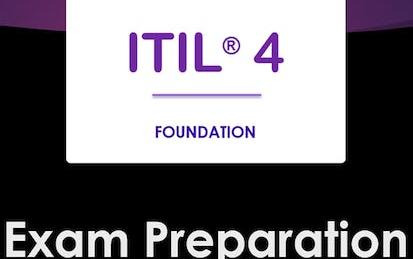

Our Courses

Foundations of Digital Marketing and E-commerce
This is the first of seven courses in the Google Digital Marketing & E-commerce Certificate, which will equip you with the skills you need to apply to entry-level roles in these fields. People who work in digital marketing and e-commerce help their organizations attract new customers, engage customers through various digital channels, and drive transactions like purchases and customer loyalty. In this course, you’ll explore entry-level jobs in digital marketing and e-commerce and identify the roles and functions that those jobs play within an organization.
-
Course by

-
 Self Paced
Self Paced
-
 18 hours
18 hours
-
 English
English

Embedded Hardware and Operating Systems
All about practical programming and creating IoTs applications! In this course, we will talk about two components of a cyber-physical system, namely hardware and operating systems. After completing this course, you will have knowledge of both hardware components and operating systems. You are able to plan and use embedded operating systems in resource-constraint devices for Internet-of-Things (cyber-physical system) applications.
-
Course by

-
 Self Paced
Self Paced
-
 17 hours
17 hours
-
 English
English

Prepare Data for Exploration
This is the third course in the Google Data Analytics Certificate. As you continue to build on your understanding of the topics from the first two courses, you’ll be introduced to new topics that will help you gain practical data analytics skills. You’ll learn how to use tools like spreadsheets and SQL to extract and make use of the right data for your objectives, and how to organize and protect your data.
-
Course by

-
 26 hours
26 hours
-
 English
English

Site Reliability Engineering: Measuring and Managing Reliability
Service level indicators (SLIs) and service level objectives (SLOs) are fundamental tools for measuring and managing reliability. In this course, students learn approaches for devising appropriate SLIs and SLOs and managing reliability through the use of an error budget.
-
Course by

-
 Self Paced
Self Paced
-
 14 hours
14 hours
-
 English
English

Analysing Complexity
The first course of the specialization ANALYZING COMPLEXITY will teach you what unifying patterns lie at the core of all complex problems. It advances your knowledge of your own field by teaching you to look at it in new ways. ANALYZING COMPLEXITY is constructed in the following way: Week I. "What is Complexity?" - What is at the core of all complex problems Week II. "Complex Physical Systems" - What complex problems all have in common in the inanimate world Week III. "Complex Adaptive Systems" - What complex problems all have in common in nature Week IV.
-
Course by

-
 Self Paced
Self Paced
-
 12 hours
12 hours
-
 English
English

Python for Genomic Data Science
This class provides an introduction to the Python programming language and the iPython notebook. This is the third course in the Genomic Big Data Science Specialization from Johns Hopkins University.
-
Course by

-
 Self Paced
Self Paced
-
 9 hours
9 hours
-
 English
English

Sales and CRM Overview
This course is the first of a series that aims to teach you the foundational skills in Salesforce that will prepare you for a variety of entry-level sales roles, including the sales operations specialist position. This course is designed for beginners. No previous experience in Salesforce, sales, or CRM is necessary to be successful. In this course, you will be introduced to essential concepts like the fundamentals of the sales process.
-
Course by

-
 Self Paced
Self Paced
-
 44 hours
44 hours
-
 English
English

A Crash Course in Data Science
By now you have definitely heard about data science and big data. In this one-week class, we will provide a crash course in what these terms mean and how they play a role in successful organizations. This class is for anyone who wants to learn what all the data science action is about, including those who will eventually need to manage data scientists. The goal is to get you up to speed as quickly as possible on data science without all the fluff.
-
Course by

-
 Self Paced
Self Paced
-
 7 hours
7 hours
-
 English
English

ITIL 4 Exam Preparation
ITIL® 4 Foundation Test Preparation is designed to introduce learners to the key concepts, terminology, and best practices for creating, and improving the quality of IT services across the IT organization. This class is focused on exam preparation. Through a series of self-paced learning, practice quizzes and exams, students become acquainted with ITIL terminology, and how it applies to the Service Value Lifecycle.\n\nThis course requires 5 weeks at about 2-4 hours/week to complete.
-
Course by

-
 Self Paced
Self Paced
-
 18 hours
18 hours
-
 English
English

Introduction to Databases
In this course, you will be introduced to databases and explore the modern ways in which they are used. Learn to distinguish between different types of database management systems then practice basic creation and data selection with the use of Structured Query Language (SQL) commands.
-
Course by

-
 Self Paced
Self Paced
-
 27 hours
27 hours
-
 English
English

Mitigating Security Vulnerabilities on Google Cloud
In this self-paced training course, participants learn mitigations for attacks at many points in a Google Cloud-based infrastructure, including Distributed Denial-of-Service attacks, phishing attacks, and threats involving content classification and use. They also learn about the Security Command Center, cloud logging and audit logging, and using Forseti to view overall compliance with your organization's security policies.
-
Course by

-
 Self Paced
Self Paced
-
 6 hours
6 hours
-
 English
English

Design a User Experience for Social Good & Prepare for Jobs
Design a User Experience for Social Good and Prepare for Jobs is the seventh and final course in a program that will equip you with the skills you need to become an entry-level UX designer. In this course, you will design a dedicated mobile app and a responsive website focused on social good. You will showcase all that you’ve learned during the certificate program to complete the design process from beginning to end: empathizing with users, defining their pain points, coming up with ideas for design solutions, creating wireframes and prototypes, and testing designs to get feedback.
-
Course by

-
 Self Paced
Self Paced
-
 87 hours
87 hours
-
 English
English

Browser-based Models with TensorFlow.js
Bringing a machine learning model into the real world involves a lot more than just modeling. This Specialization will teach you how to navigate various deployment scenarios and use data more effectively to train your model. In this first course, you’ll train and run machine learning models in any browser using TensorFlow.js. You’ll learn techniques for handling data in the browser, and at the end you’ll build a computer vision project that recognizes and classifies objects from a webcam. This Specialization builds upon our TensorFlow in Practice Specialization.
-
Course by

-
 Self Paced
Self Paced
-
 19 hours
19 hours
-
 English
English

SQL for Data Science
As data collection has increased exponentially, so has the need for people skilled at using and interacting with data; to be able to think critically, and provide insights to make better decisions and optimize their businesses. This is a data scientist, “part mathematician, part computer scientist, and part trend spotter” (SAS Institute, Inc.). According to Glassdoor, being a data scientist is the best job in America; with a median base salary of $110,000 and thousands of job openings at a time.
-
Course by

-
 Self Paced
Self Paced
-
 14 hours
14 hours
-
 English
English

Modernizing Data Lakes and Data Warehouses with Google Cloud
The two key components of any data pipeline are data lakes and warehouses. This course highlights use-cases for each type of storage and dives into the available data lake and warehouse solutions on Google Cloud in technical detail. Also, this course describes the role of a data engineer, the benefits of a successful data pipeline to business operations, and examines why data engineering should be done in a cloud environment. This is the first course of the Data Engineering on Google Cloud series.
-
Course by

-
 Self Paced
Self Paced
-
 7 hours
7 hours
-
 English
English

Storytelling in Branding and Content Marketing
Storytelling in Branding and Content Marketing is an IE University course for professionals who want to learn how to produce memorable content through quality storytelling. Students will go through a learning process that will start with a deep understanding of the term Branded Content and its main differences with traditional advertising, simultaneously creating an effective storyline based on strong brand values and messages.
-
Course by

-
 Self Paced
Self Paced
-
 13 hours
13 hours
-
 English
English

Building Cloud Services with the Java Spring Framework
This MOOC describes by example how to build cloud services via the use of object-oriented design techniques; Java programming language features; Java Servlets, the Java Spring Framework; and cloud computing platforms, such as Amazon Web Services. Due to the importance of building secure and scalable mobile/cloud platforms, this MOOC will not only show you how to build cloud services, but how to do so securely, scalably, and efficiently.
-
Course by

-
 Self Paced
Self Paced
-
 14 hours
14 hours
-
 English
English
Medical Neuroscience
Medical Neuroscience explores the functional organization and neurophysiology of the human central nervous system, while providing a neurobiological framework for understanding human behavior. In this course, you will discover the organization of the neural systems in the brain and spinal cord that mediate sensation, motivate bodily action, and integrate sensorimotor signals with memory, emotion and related faculties of cognition.
-
Course by

-
 Self Paced
Self Paced
-
 71 hours
71 hours
-
 English
English

Decentralized Applications (Dapps)
This third course of the Blockchain specialization prepares you to design and develop end-to-end decentralized applications (Dapps) – which provide anyone with access to the blockchain’s features and services. You will use Truffle IDE, smart contracts, a simple web client and a MetaMask client. You will learn about the architecture of a Dapp: the front-end client interface, backed by the blockchain and smart contracts.
-
Course by

-
 Self Paced
Self Paced
-
 18 hours
18 hours
-
 English
English

The Horse Course: Introduction to Basic Care and Management
There are over 100 million horses, donkeys and mules in the world today and owners of these animals can be found on almost every continent and in almost every society. The Horse Course will cover many unique aspects of equine ownership and touch upon the science behind many of today’s management practices.
-
Course by

-
 Self Paced
Self Paced
-
 19 hours
19 hours
-
 English
English

Modern American Poetry
Twelve experienced faculty members from across the United States present their analyses of ground-breaking modern American poets in richly illustrated video lectures. The course highlights both major poets—from Walt Whitman and Emily Dickinson through T.S. Eliot, H.D., Amy Lowell, Hart Crane, Langston Hughes, Muriel Rukeyser, and many others—and influential movements. The course mixes historical overview with close readings of individual poets and poems. Most courses give only one instructor’s point of view.
-
Course by

-
 Self Paced
Self Paced
-
 35 hours
35 hours
-
 English
English

Pricing Options with Mathematical Models
This is an introductory course on options and other financial derivatives, and their applications to risk management. We will start with defining derivatives and options, continue with discrete-time, binomial tree models, and then develop continuous-time, Brownian Motion models. A basic introduction to Stochastic, Ito Calculus will be given. The benchmark model will be the Black-Scholes-Merton pricing model, but we will also discuss more general models, such as stochastic volatility models.
-
Course by

-
 Self Paced
Self Paced
-
 69 hours
69 hours
-
 English
English

4G Network Fundamentals
4G is the cutting-edge network technology that links millions of smartphones to the internet.
-
Course by

-
 Self Paced
Self Paced
-
 17 hours
17 hours
-
 English
English

Foundations of Project Management
This course is the first in a series of six to equip you with the skills you need to apply to introductory-level roles in project management. Project managers play a key role in leading, planning and implementing critical projects to help their organizations succeed. In this course, you’ll discover foundational project management terminology and gain a deeper understanding of the role and responsibilities of a project manager. We’ll also introduce you to the kinds of jobs you might pursue after completing this program.
-
Course by

-
 Self Paced
Self Paced
-
 18 hours
18 hours
-
 English
English

Service-Oriented Architecture
Based on an understanding of architectural styles, you will review architectures for web applications, then explore the basics of Service-Oriented Architecture (SOA) in two approaches: Web Services (WS*) and Representational State Transfer (REST) architecture.
-
Course by

-
 Self Paced
Self Paced
-
 10 hours
10 hours
-
 English
English



